Purpose
The purpose of this Quick Reference Guide (QRG) is to provide a step-by-step explanation on how to Create Miscellaneous Transactions in the North Carolina Financial System (NCFS).
Introduction and Overview
This QRG covers the procedure of creating miscellaneous issues and receipt transactions in NCFS which will enable you to reduce and increase quantity in the inventory respectively. The table below shows the various types of Miscellaneous Transactions:
| Misc. Transactions | Description | |
| NC Direct Issue | NC Direct Issue is used to issue one or more items to same or different centers from the inventory organization (over-the-counter issue). | |
| NC Direct Return | Items that are returned by customers or by another inventory organization to the issuing warehouse (over the counter). | |
| Return from SSP Order | In NCFS, “Returns from SSP Orders” is used to receive items returned by customers that were issued using Self Service Procurement (SSP). | |
| NC Unordered Quantity | In NCFS, Receive Items in the warehouse that were bought without Purchase Order in the Inventory Organization. | |
| NC Add Inventory Adjustments | NC Add Inventory Adjustments will be used to add item quantity (positive adjustments) to Inventory Organization. | |
| NC Deduct Inventory Adjustments | In NCFS, NC Deduct Inventory Adjustments will be used to reduce item quantity (negative adjustment) in Inventory Organization. |
Create Miscellaneous Transactions – Issue
To create miscellaneous issue transactions in NCFS, please follow the steps below. There are 10 steps to complete this process.
Step 1. Log in to the NCFS portal with your credentials to access the system.
Step 2. On the Home page, click the Supply Chain Execution tab and then click the Inventory Management app.
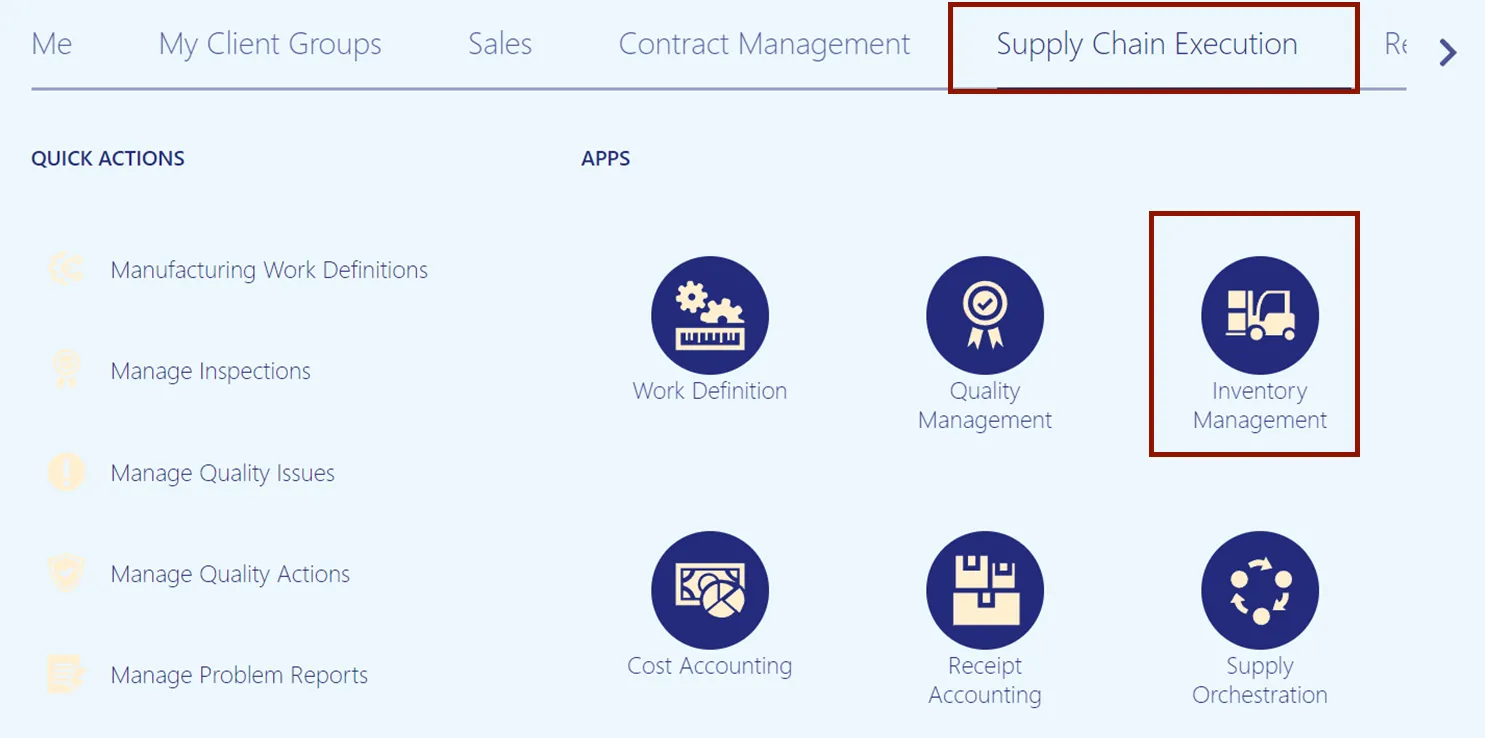
Step 3. On the Inventory Management dashboard, click the View By icon.
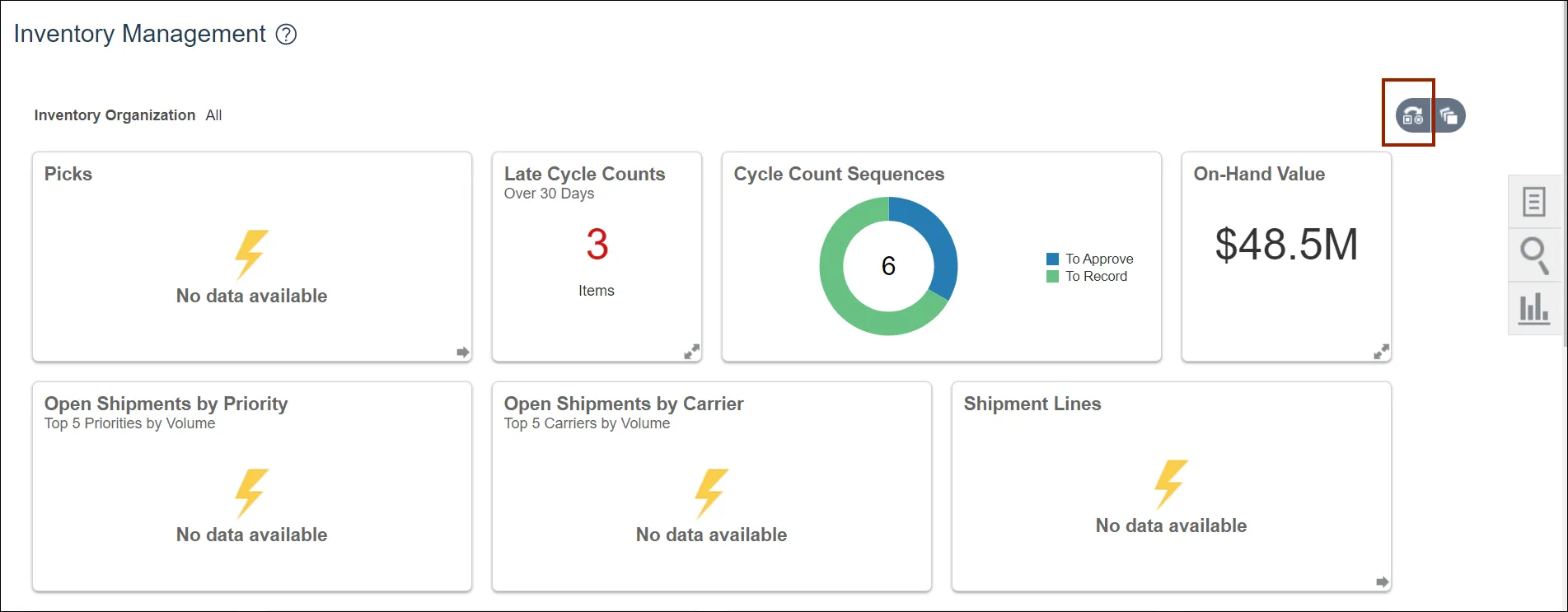
Step 4. Enter the Inventory Organization.
In this example, we choose 428305R and click the Apply button.
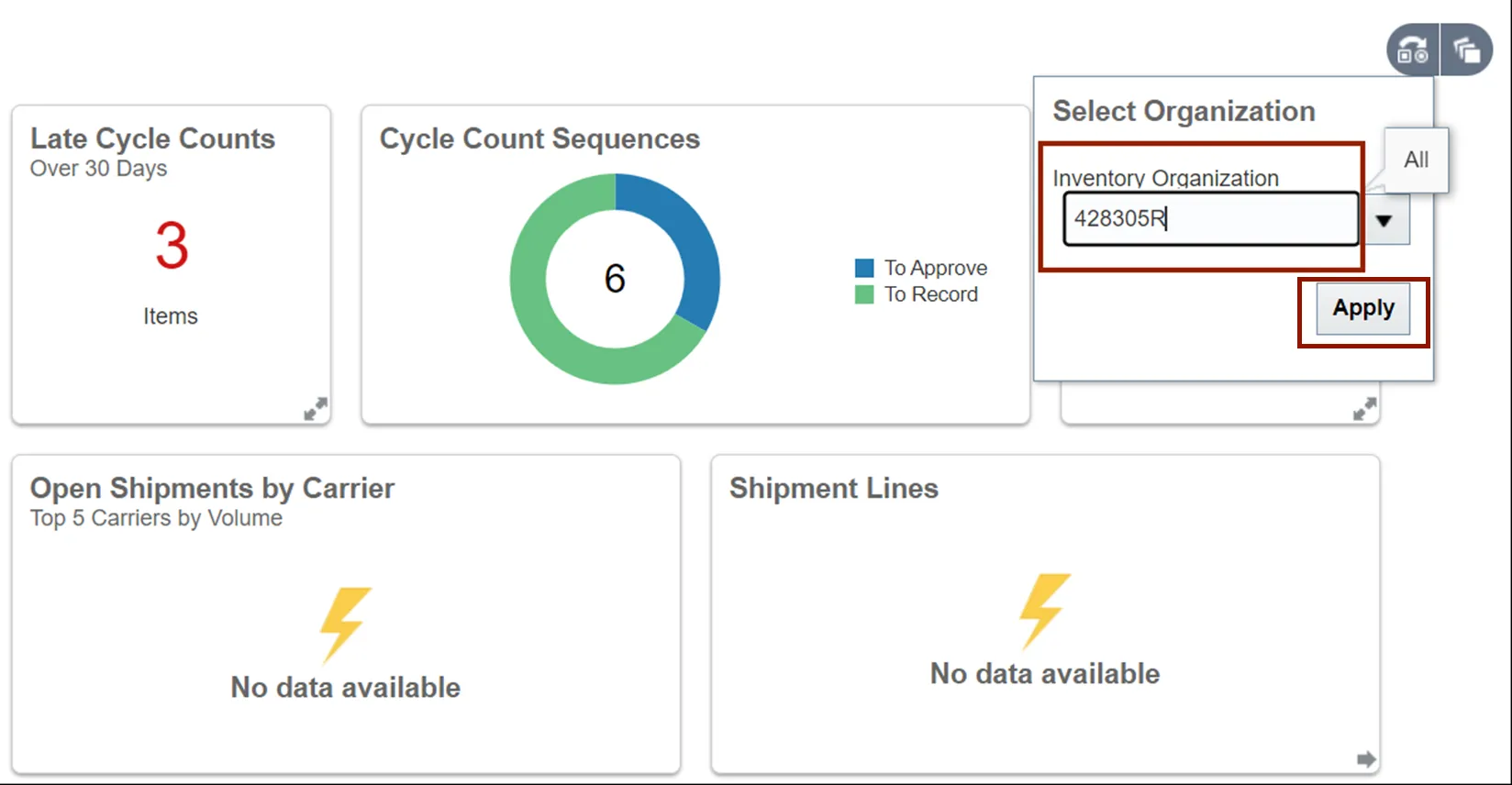
Step 5. Click the Tasks icon, and click Create Miscellaneous Transaction.
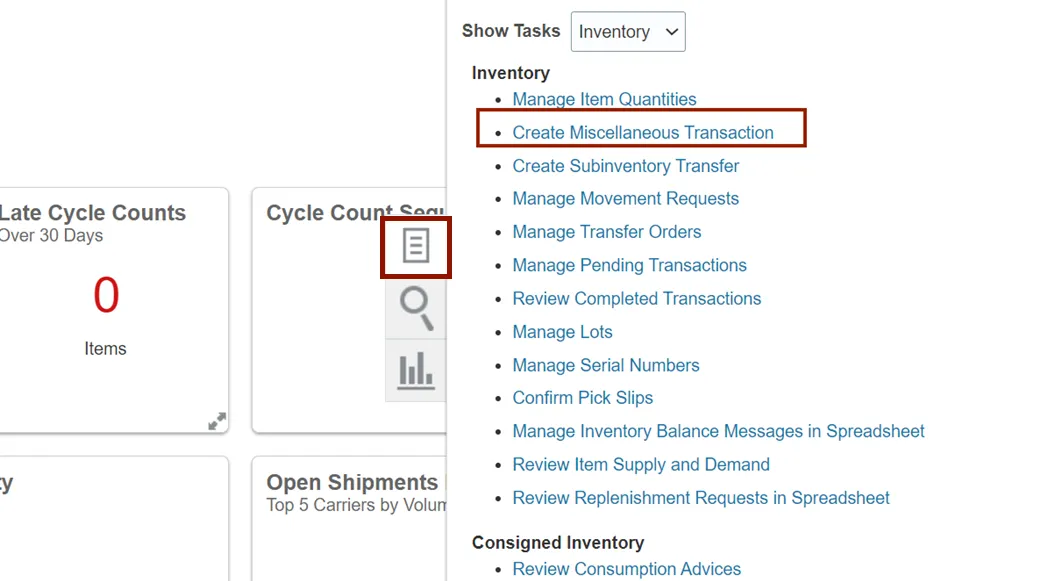
Step 6. On the Transaction section, click the Type drop-down, then select the appropriate type – NC Direct Issue or NC Deduct Inventory Adjustments.
In this example, we choose NC Direct Issue.
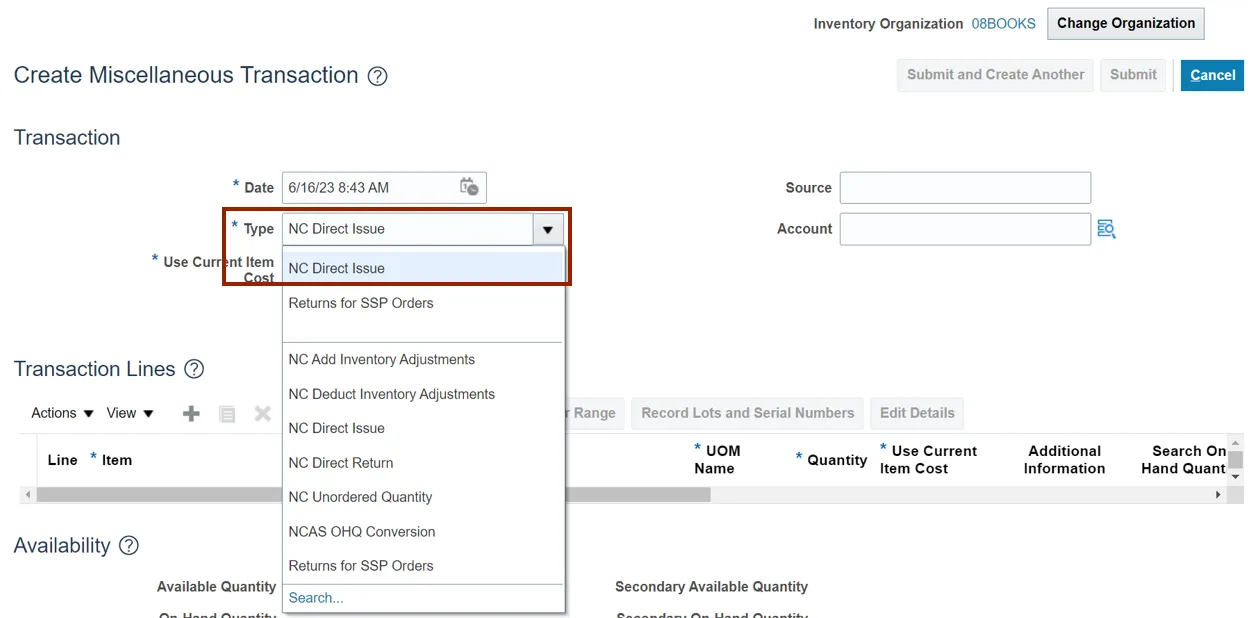
Step 7. Click the Add icon.
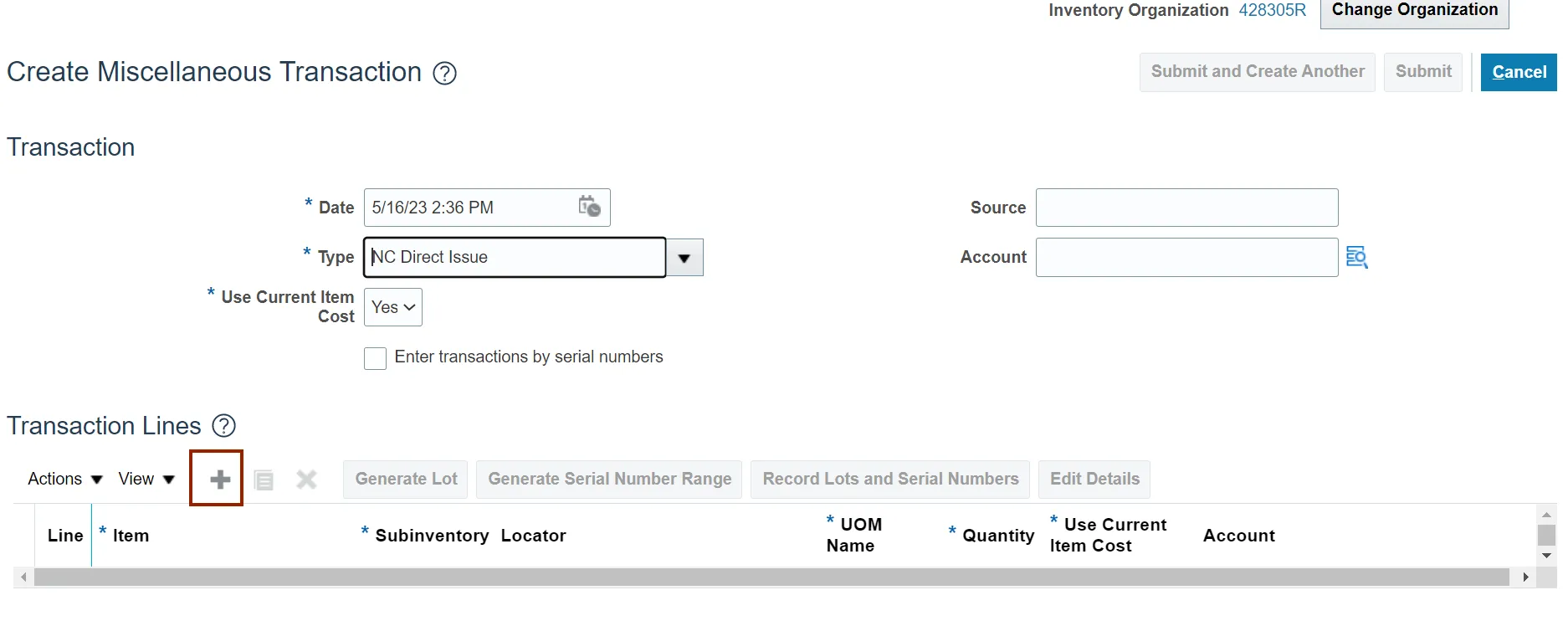
Step 8. Under the Transaction Lines section, enter the Item details.
Note: For the Charge Account, please make sure to only use your agencies correct Business Unit, DHHS = 3000, DAC = 5200, and DPI = 0800. Enter a valid Budget Fund, select a “5” series account number and an appropriate AMU for your facility. DO NOT ENTER ZEROS FOR AMU.

Step 9. Click the Submit button.
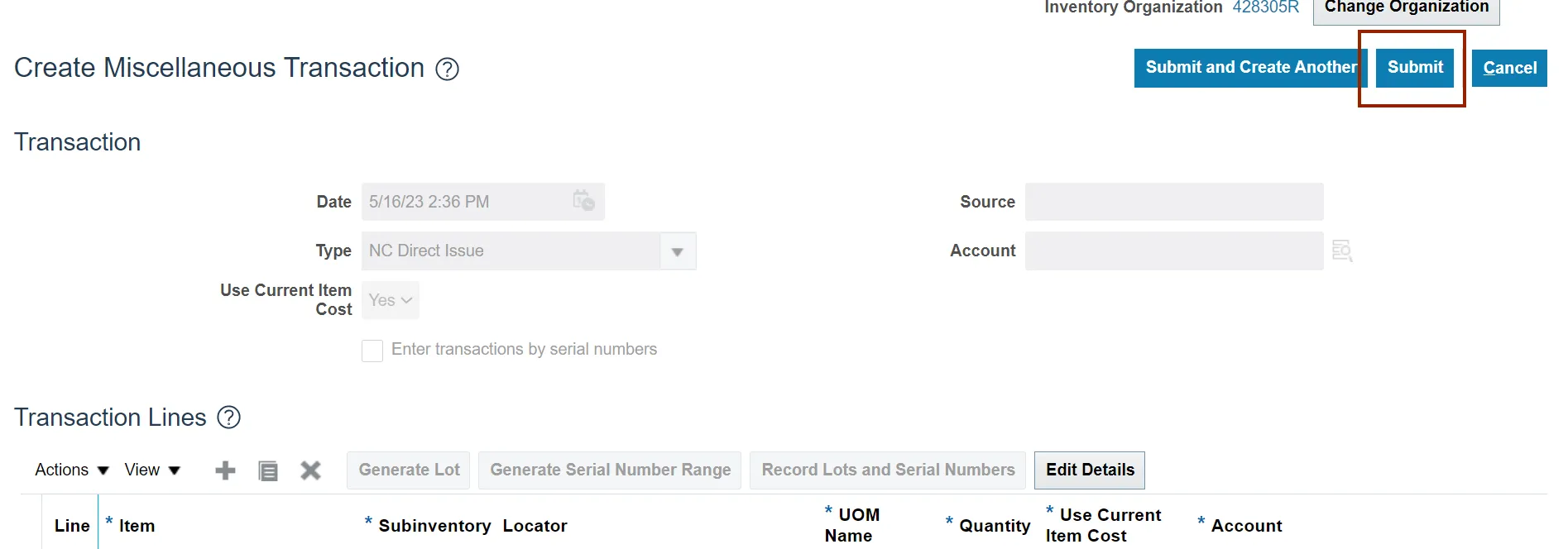
Step 10. A Confirmation pop-up appears. Click the OK button.
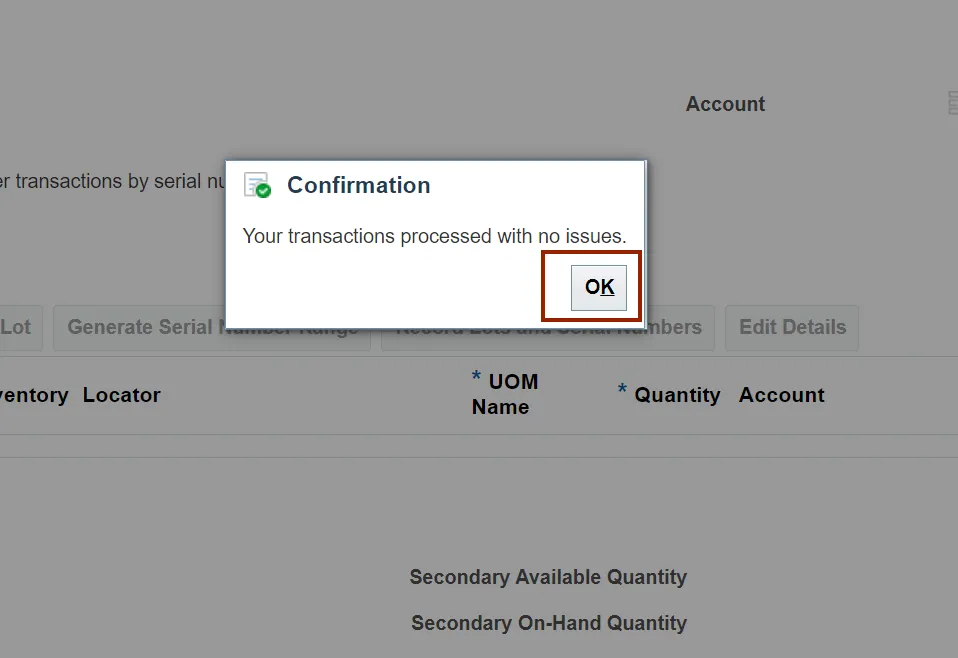
Create Miscellaneous Transactions- Receipt
To create miscellaneous receipt transactions in NCFS, please follow the steps below. There are 8 steps to complete this process.
Step 1. Log in to the NCFS portal with your credentials to access the system.
Step 2. Navigate to the Create Miscellaneous Transaction page. Click the Type field, then select the appropriate Type – Returns for SSP Orders, NC Add Inventory Adjustments, NC Direct Return, NC Unordered Quantity.
In this example, we choose Return for SSP Orders.
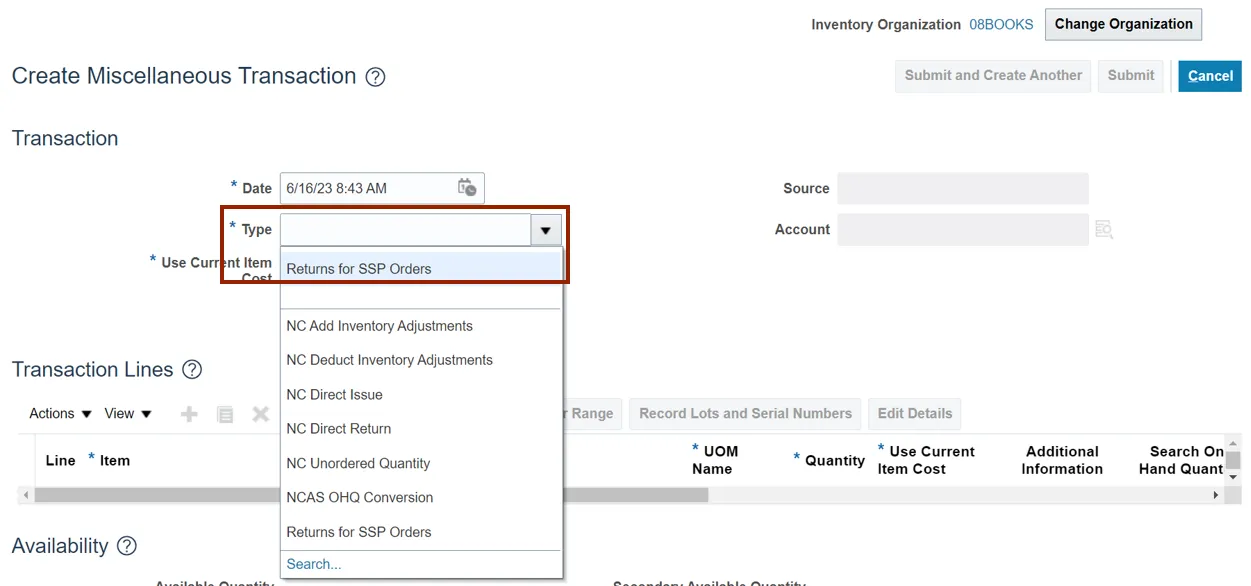
Step 3. Click the Add icon, and under the Transaction Lines section, enter the Item details and any other information per requirement.
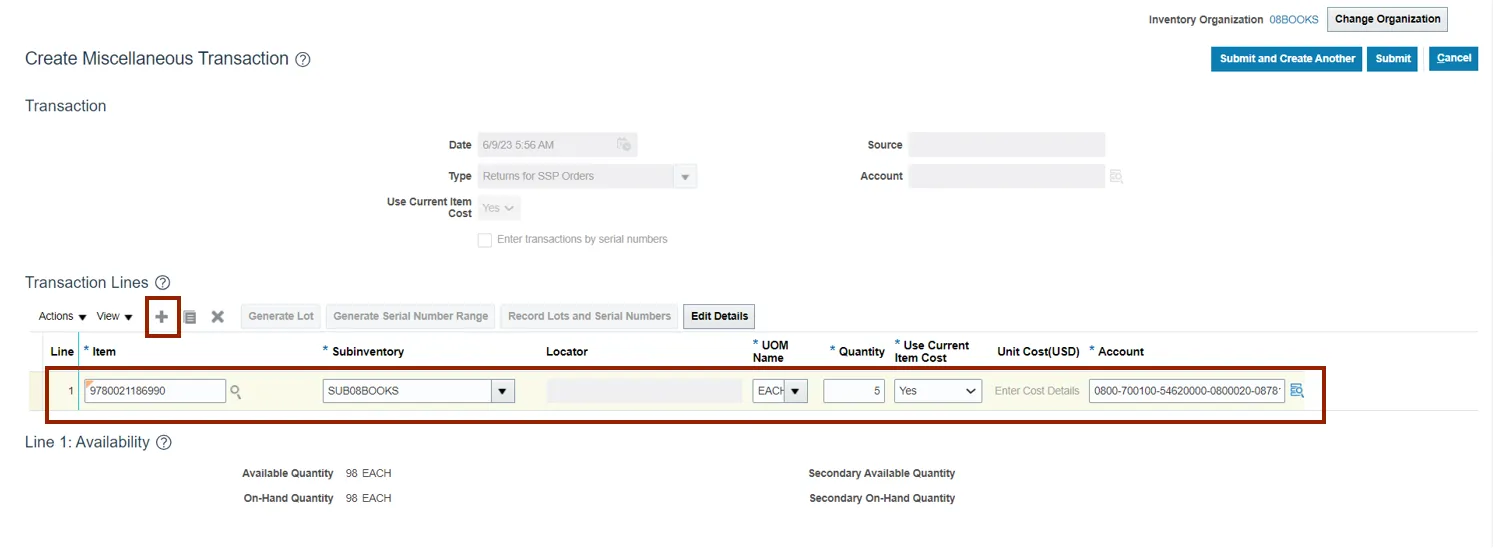
Please Note – Steps 4, 5, and 6 are not required for NC Direct Return, NC Add Inventory Adjustment, or NC Unordered Quantity Transactions. User can proceed to Step 7.
Step 4. Under the Transaction Lines section, click on View > Columns > Additional Information.
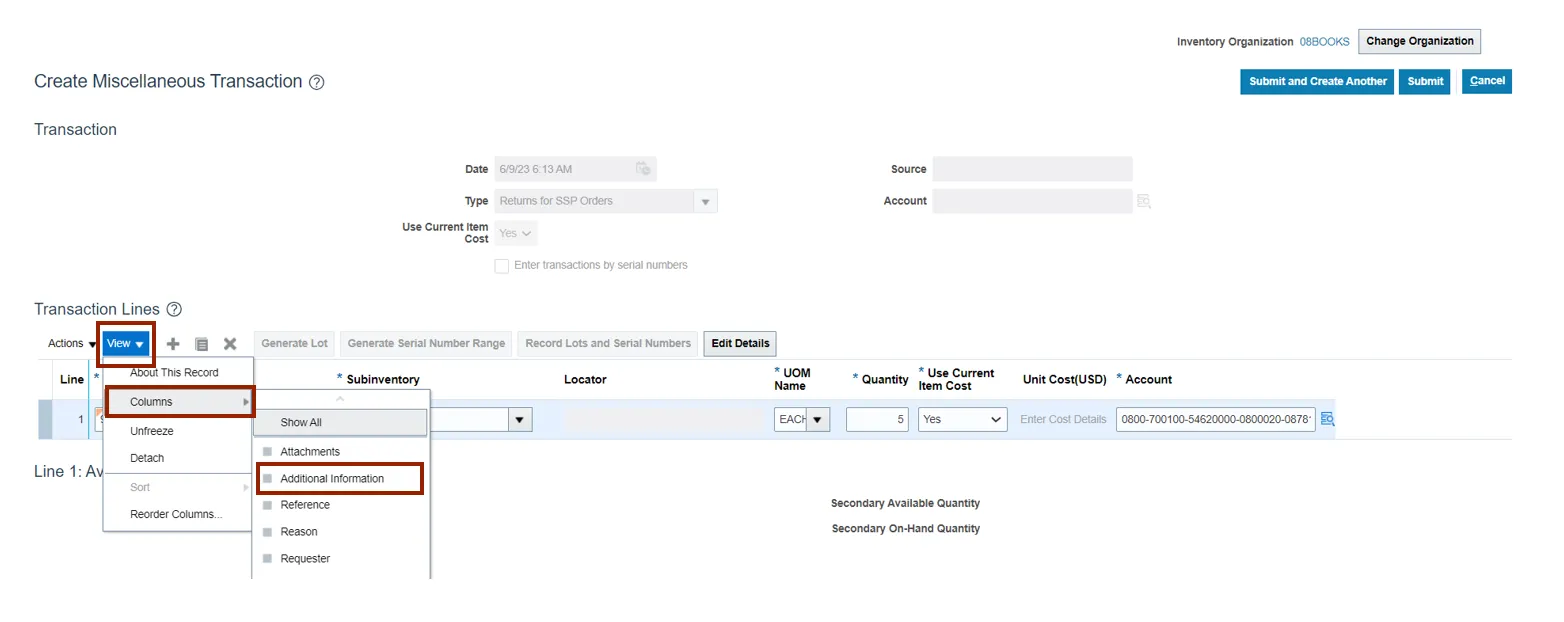
Step 5. Click the Additional Information icon.
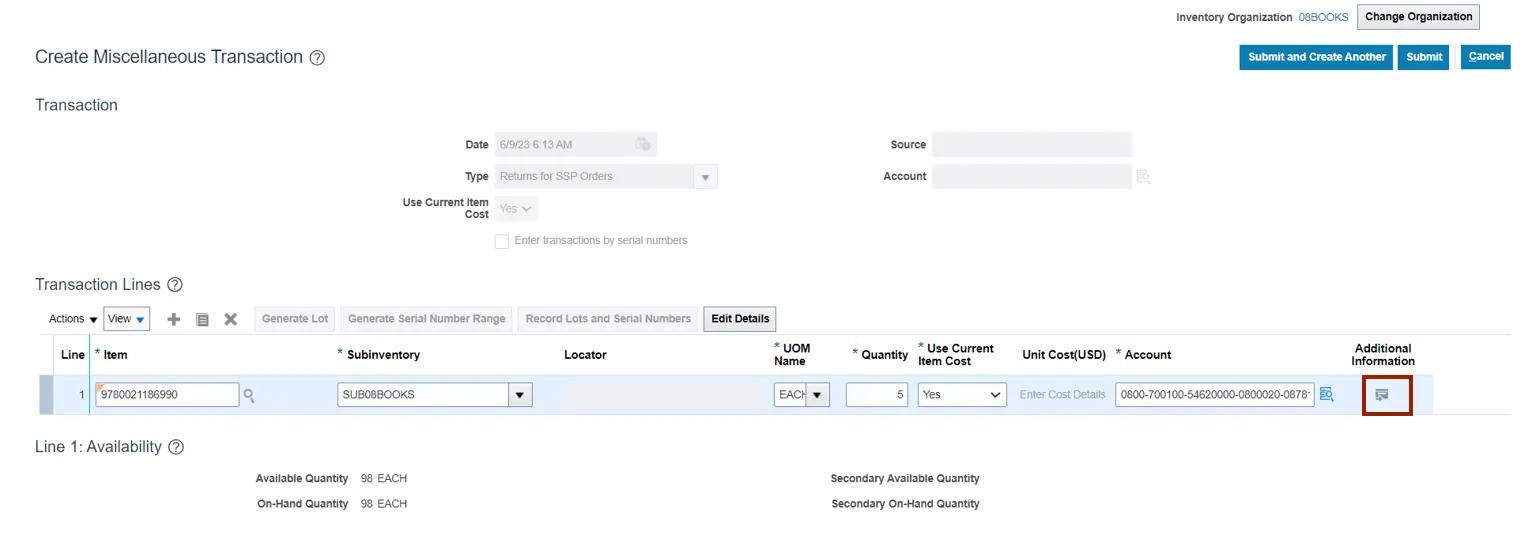
Step 6. Select the Reference Consumption Requisition number and click the OK button.
Note: Reference Consumption Requisition will be auto populated only for Returns for SSP Orders transaction type
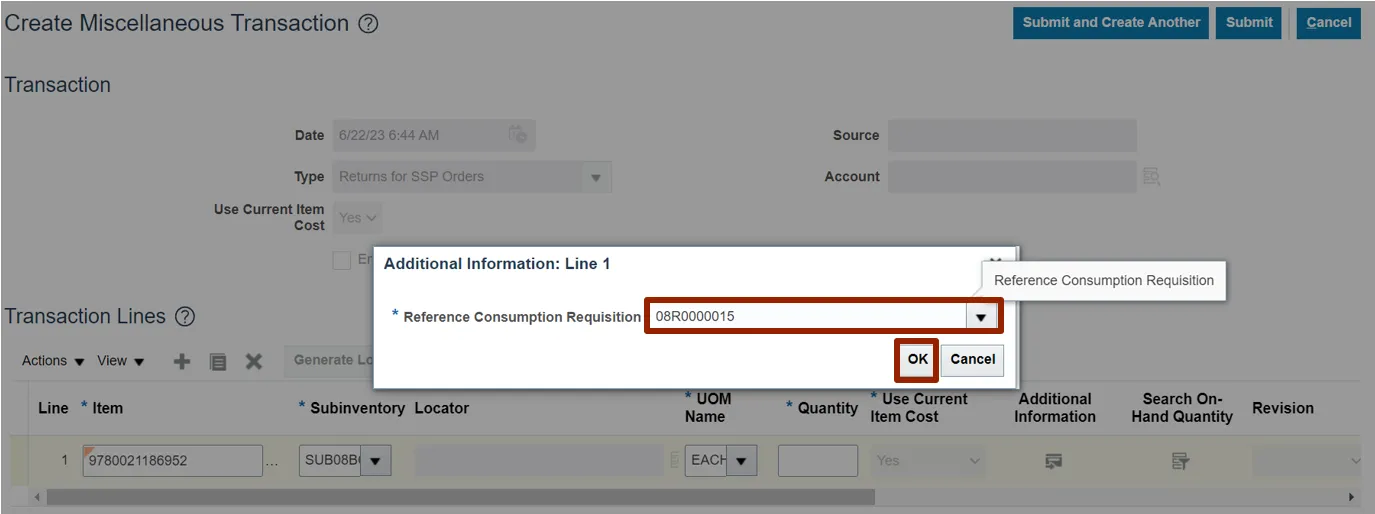
Step 7. Click the Submit button.
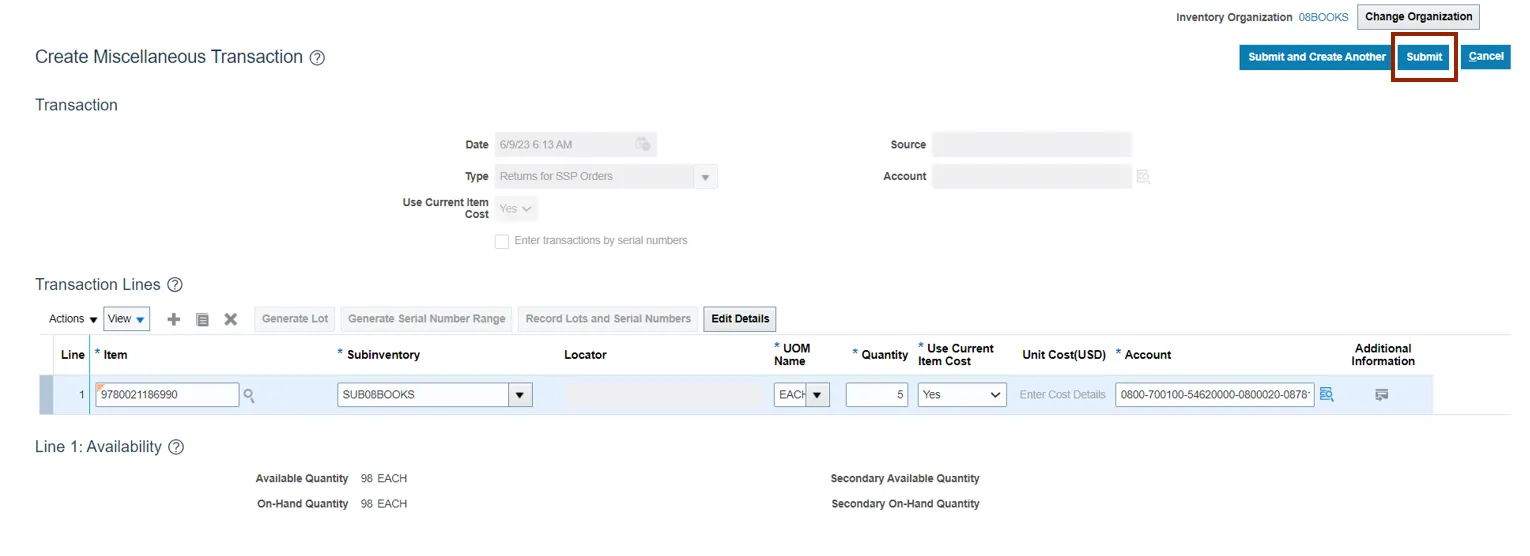
Step 8. A Confirmation pop-up appears. Click the OK button.
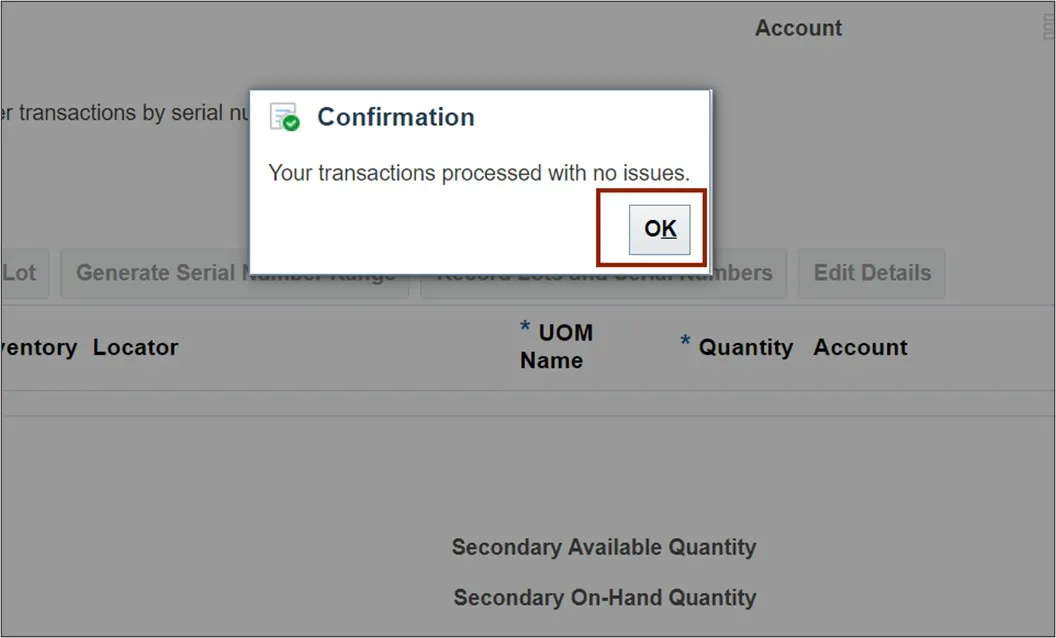
Wrap-Up
Create Miscellaneous transactions using the steps above in NCFS to create miscellaneous issue transactions to reduce quantity in the inventory and to create miscellaneous receipt transactions increase quantity in the inventory.
Additional Resources
- Virtual Instructor-Led Training (vILT)